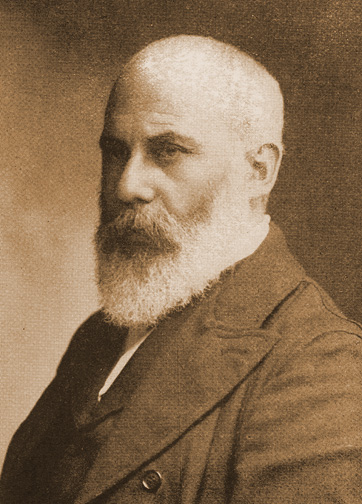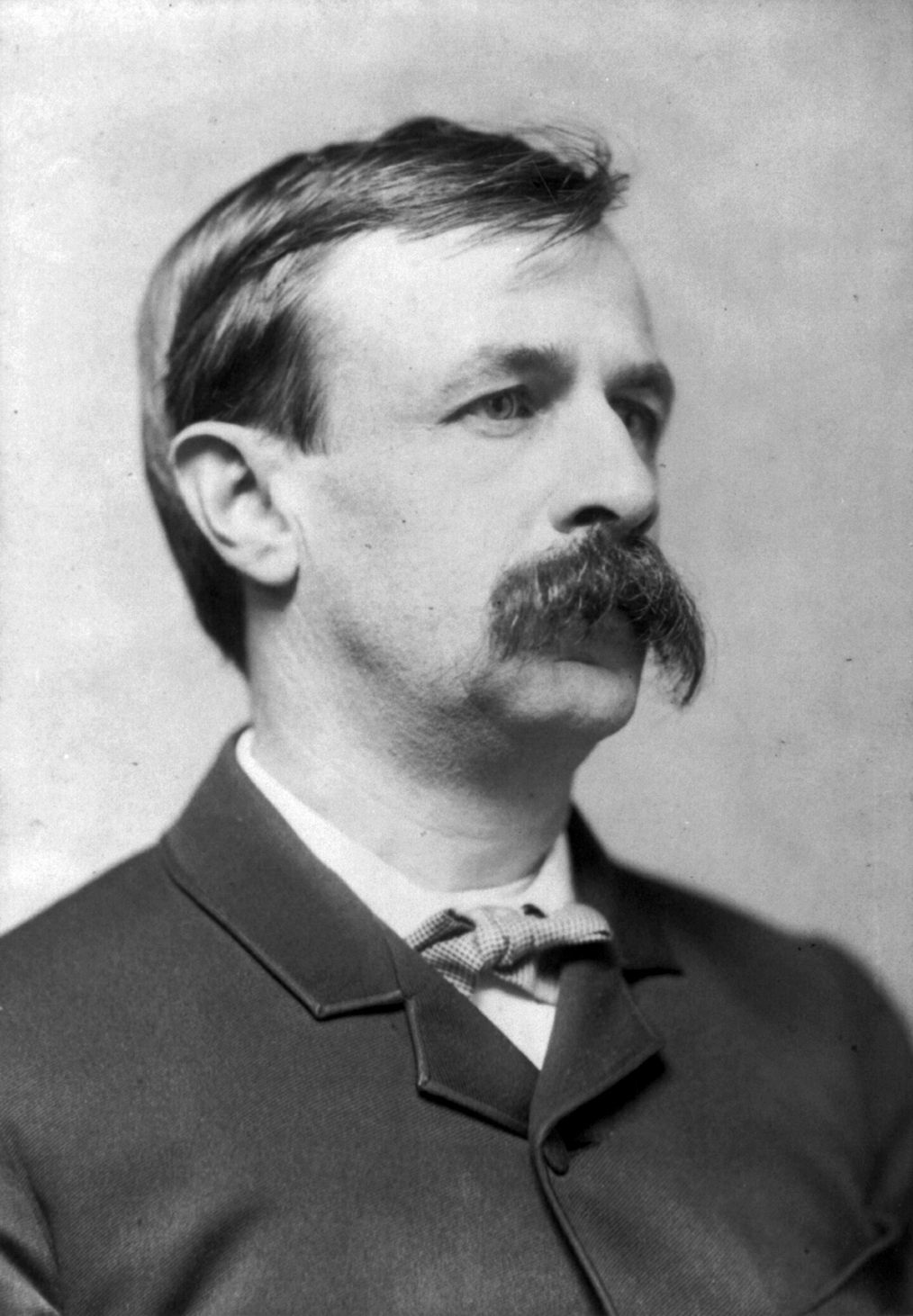|
Lucien Sanial
Lucien Delabarre Sanial (12 September 1835 – 7 January 1927) was a French-American newspaper editor, economist, and political activist. A pioneer member of the Socialist Labor Party of America, Sanial is best remembered as one of the earliest economic theorists to deal with the Marxian concept of imperialism. Biography Early years Lucien Sanial was born September 12, 1835 in France, the son of a man who was a medical doctor and scientist.Solon DeLeon with Irma C. Hayssen and Grace Poole, ''The American Labor Who's Who.'' New York: Hanford Press, 1925; pg. 203. Sanial attended secondary school in France before enrolling in the Polytechnical School of the University of Charlemagne. Sanial first came to the United States in 1862, when he was sent by the ''Paris Temps'' (Paris Times) as a war correspondent during the American Civil War. Sanial subsequently chose to take up permanent residence in America. First political activities Sanial joined the fledgling Socialist Labor P ... [...More Info...] [...Related Items...] OR: [Wikipedia] [Google] [Baidu] |
Wilhelm Rosenberg
Wilhelm Ludwig "William" Rosenberg (1850 – 1930s) was a German-American teacher, poet, playwright, journalist, and socialist political activist. He is best remembered as the head of the Socialist Labor Party of America from 1884 to 1889. Biography Early years Wilhelm Ludwig Rosenberg was born in Hamm, Westphalia, Kingdom of Prussia in January 1850.Dirk Hoerder with Christiane Harzig (eds.), ''The Immigrant Labor Press in North America, 1840s-1970s: An Annotated Bibliography: Volume 3: Migrants from Southern and Western Europe.'' Westport, CT: Greenwood Press, 1987; pg. 516. Rosenberg was university educated, and worked as a teacher of Latin and French in Frankfurt am Main. Rosenberg was politically radical from an early age and was a contributor to ''Die Neue Welt'' (''The New World''), a German socialist newspaper. Emigration to America Rosenberg was forced to emigrate from Germany in 1880 under the pressure of the Anti-Socialist Laws of 1878, landing in America. Rose ... [...More Info...] [...Related Items...] OR: [Wikipedia] [Google] [Baidu] |
Central Labor Union
The Central Labor Union of New York, Brooklyn, and New Jersey was an early trade union organization that later broke up into various locals, which are now AFL–CIO members. The establishment of the CLU predates the consolidation of New York City (1897) by nearly two decades and is best known as the organization that created the American Labor Day holiday. Organized in 1867, it later spread to Philadelphia, Pennsylvania. The union was firmly Marxist in orientation and was the first integrated labor union in the United States. Politics Closely linked to the Central Labor Union was the United Labor Party. Henry George was its candidate for Mayor of New York City in 1886 but lost the race by a wide margin. See also * Knights of Labor * May Day * Peter J. McGuire Peter J. McGuire (July 6, 1852 – February 18, 1906) was an American labor leader of the nineteenth century. He co-founded the United Brotherhood of Carpenters and Joiners of America in 1881 along with Gustav Luebkert ... [...More Info...] [...Related Items...] OR: [Wikipedia] [Google] [Baidu] |
Second International
The Second International (1889–1916) was an organisation of socialist and labour parties, formed on 14 July 1889 at two simultaneous Paris meetings in which delegations from twenty countries participated. The Second International continued the work of the dissolved First International, though excluding the powerful anarcho-syndicalist movement. While the international had initially declared its opposition to all warfare between European powers, most of the major European parties ultimately chose to support their respective states in World War I. After splitting into pro-Allied, pro-Central Powers, and antimilitarist factions, the international ceased to function. After the war, the remaining factions of the international went on to found the Labour and Socialist International, the International Working Union of Socialist Parties, and the Communist International. History Pre-foundation conferences (1881–1889) The foundation of a new international was first discussed at ... [...More Info...] [...Related Items...] OR: [Wikipedia] [Google] [Baidu] |
The People (1891)
''The People'' was an official organ of the Socialist Labor Party of America (SLP), a weekly newspaper established in New York City in 1891. The paper is best remembered as a vehicle for the ideas of Daniel De Leon, Daniel DeLeon (1852–1914), the dominant ideology, ideological leader of the SLP from the 1890s until the time of his death. The paper became a daily in 1900, reverting to weekly publication in 1914 for budgetary reasons. Publication of the paper was moved to Palo Alto, California, during its later years, finally terminating publication in 2008. Its 117 years of continuous publication make ''The People'' the longest running socialism, socialist newspaper in the history of American political radicalism. Publication history Forerunners The Workingmen's Party of the United States was established in August 1876 and renamed itself as the Socialist Labor Party of America The Socialist Labor Party (SLP)"The name of this organization shall be Socialist Labor Party". A ... [...More Info...] [...Related Items...] OR: [Wikipedia] [Google] [Baidu] |
Columbia University
Columbia University (also known as Columbia, and officially as Columbia University in the City of New York) is a private research university in New York City. Established in 1754 as King's College on the grounds of Trinity Church in Manhattan, Columbia is the oldest institution of higher education in New York and the fifth-oldest institution of higher learning in the United States. It is one of nine colonial colleges founded prior to the Declaration of Independence. It is a member of the Ivy League. Columbia is ranked among the top universities in the world. Columbia was established by royal charter under George II of Great Britain. It was renamed Columbia College in 1784 following the American Revolution, and in 1787 was placed under a private board of trustees headed by former students Alexander Hamilton and John Jay. In 1896, the campus was moved to its current location in Morningside Heights and renamed Columbia University. Columbia scientists and scholars have ... [...More Info...] [...Related Items...] OR: [Wikipedia] [Google] [Baidu] |
Looking Backward
''Looking Backward: 2000–1887'' is a utopian science fiction novel by Edward Bellamy, a journalist and writer from Chicopee Falls, Massachusetts; it was first published in 1888. The book was translated into several languages, and in short order "sold a million copies." In 2021 The New York Times published "In the 19th-century United States, only ''Uncle Tom’s Cabin'' sold more copies in its first years than 'Looking Backward.' It influenced many intellectuals, and appears by title in many socialist writings of the day. "It is one of the few books ever published that created almost immediately on its appearance a political mass movement".Edward Bellamy, ''Looking Backward 2000–1887'', with a Foreword by Erich Fromm, p. vi. Signet, 1960. In the United States alone, over 162 "Bellamy Clubs" sprang up to discuss and propagate the book's ideas. Owing to its commitment to the nationalization of private property and the desire to avoid use of the term "socialism", this po ... [...More Info...] [...Related Items...] OR: [Wikipedia] [Google] [Baidu] |
Edward Bellamy
Edward Bellamy (March 26, 1850 – May 22, 1898) was an American author, journalist, and political activist most famous for his utopian novel ''Looking Backward''. Bellamy's vision of a harmonious future world inspired the formation of numerous "Nationalist Clubs" dedicated to the propagation of his political ideas. After working as a journalist and writing several unremarkable novels, Bellamy published ''Looking Backward'' in 1888. It was one of the most commercially successful books published in the United States in the 19th century, and it especially appealed to a generation of intellectuals alienated from the alleged dark side of the Gilded Age. In the early 1890s, Bellamy established a newspaper known as ''The New Nation'' and began to promote united action between the various Nationalist Clubs and the emerging Populist Party. He published ''Equality'', a sequel to ''Looking Backward'', in 1897, and died the following year. Biography Early years Edward Bellamy was bor ... [...More Info...] [...Related Items...] OR: [Wikipedia] [Google] [Baidu] |
Utopian Socialist
Utopian socialism is the term often used to describe the first current of modern socialism and socialist thought as exemplified by the work of Henri de Saint-Simon, Charles Fourier, Étienne Cabet, and Robert Owen. Utopian socialism is often described as the presentation of visions and outlines for imaginary or futuristic ideal societies, with positive ideals being the main reason for moving society in such a direction. Later socialists and critics of utopian socialism viewed utopian socialism as not being grounded in actual material conditions of existing society. These visions of ideal societies competed with revolutionary and social democratic movements. As a term or label, ''utopian socialism'' is most often applied to, or used to define, those socialists who lived in the first quarter of the 19th century who were ascribed the label utopian by later socialists as a pejorative in order to imply naïveté and to dismiss their ideas as fanciful and unrealistic.''Newman, Michael ... [...More Info...] [...Related Items...] OR: [Wikipedia] [Google] [Baidu] |
Nationalization
Nationalization (nationalisation in British English) is the process of transforming privately-owned assets into public assets by bringing them under the public ownership of a national government or state. Nationalization usually refers to private assets or to assets owned by lower levels of government (such as municipalities) being transferred to the state. Nationalization contrasts with privatization and with demutualization. When previously nationalized assets are privatized and subsequently returned to public ownership at a later stage, they are said to have undergone renationalization. Industries often subject to nationalization include the commanding heights of the economy – telecommunications, electric power, fossil fuels, railways, airlines, iron ore, media, postal services, banks, and water – though, in many jurisdictions, many such entities have no history of private ownership. Nationalization may occur with or without financial compensation to the former owners. ... [...More Info...] [...Related Items...] OR: [Wikipedia] [Google] [Baidu] |
Nationalist Clubs
Nationalist Clubs were an organized network of socialist political groups which emerged at the end of the 1880s in the United States of America in an effort to make real the ideas advanced by Edward Bellamy in his utopian novel ''Looking Backward.'' At least 165 Nationalist Clubs were formed by so-called "Bellamyites," who sought to remake the economy and society through the nationalization of industry. One of the last issues of ''The Nationalist'' noted that "over 500" had been formed. Owing to the growth of the Populist movement and the financial and physical difficulties suffered by Bellamy, the Bellamyite Nationalist Clubs began to dissipate in 1892, lost their national magazine in 1894, and vanished from the scene entirely circa 1896. Organizational history Background In 1888, a young Massachusetts writer named Edward Bellamy published a work of utopian fiction entitled Looking Backward, 2000-1887'' telling the Rip Van Winkle-like tale of a 19th-century New England capi ... [...More Info...] [...Related Items...] OR: [Wikipedia] [Google] [Baidu] |



